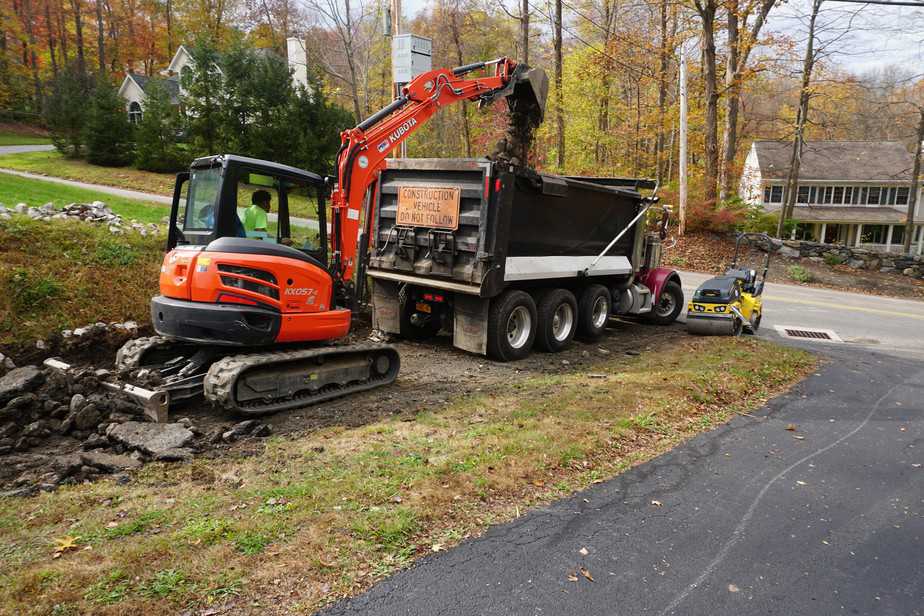Comprehensive Excavation Techniques: Mastering the Fundamentals for Success
The cautious preparation, accurate implementation, and precise focus to detail required in excavation jobs require a comprehensive strategy that encompasses different basic aspects. The true proficiency exists not just in understanding these basics yet in perfectly incorporating them to browse the complexities of excavation projects with finesse.
Recognizing Excavation Task Planning

Effective excavation tasks are improved the structure of careful and complete preparation. The first stage of any type of excavation job is the drawing board, where important choices are made that can dramatically impact the outcome of the job. Throughout this stage, it is vital to collect all pertinent details concerning the website, including topographical studies, dirt structure, and any potential dangers that may exist. Understanding the job spending plan, timeline, and range restrictions is important for creating an extensive excavation plan that makes sure the task's success.
One key aspect of excavation job preparation is the growth of a detailed timeline that describes the sequence of milestones, target dates, and tasks. By thoroughly considering all these factors during the preparation stage, excavation jobs can be performed effectively and successfully, leading to effective results - lancaster trenching.
Dirt Analysis and Site Assessment
Conducting extensive soil analysis and site evaluation is a crucial step in the prep work stage of any type of excavation task. Dirt analysis entails figuring out the composition, framework, and residential or commercial properties of the dirt at the excavation site. This info is important for understanding the dirt's bearing ability, moisture content, and capacity for disintegration, which are vital factors in establishing the excavation methods and devices needed for the job.
Site analysis exceeds soil analysis and incorporates a more comprehensive evaluation of the overall website problems. This analysis consists of recognizing any potential dangers, such as underground energies, ecological concerns, or unpredictable terrain, that might influence the excavation procedure. By extensively assessing the website, project managers can create reliable excavation approaches that prioritize safety, effectiveness, and environmental management.
Using innovative innovations like ground-penetrating radar, dirt sampling, and drone studies can enhance the precision and effectiveness of dirt analysis and website assessment. Spending time and resources in these preliminary actions can ultimately save time and stop costly hold-ups or complications during the excavation process.
Equipment Choice and Use
Reliable excavation projects depend heavily on strategic tools option and use to make sure ideal efficiency and efficiency. Picking the best devices for the work is critical in making best use of performance and decreasing downtime. Factors such as the kind of soil, deepness of excavation, and project range play a considerable duty in identifying one of the most suitable devices for the task available.

Along with picking the appropriate tools, correct usage is vital to project success. Operators needs to be educated to deal with the equipment safely and efficiently - excavating ohio. Routine upkeep checks and timely repair services assist prevent malfunctions and make sure consistent efficiency throughout the project
Security Actions and Rules Compliance
In the world of excavation projects, focusing on helpful site precaution and compliance with regulations is extremely important to guaranteeing a lawfully audio and protected operational setting. Precaution encompass a series of practices, consisting of conducting thorough site assessments, carrying out appropriate signs and obstacles, and providing adequate safety and security training for all employees associated with the excavation procedure. Adherence to laws, such as OSHA needs in the United States, guarantees that the excavation job satisfies the required standards to safeguard workers, onlookers, and the surrounding setting.

Monitoring Progress and Adjusting Methods
Exactly how can forecast managers effectively track the advancement of excavation projects and adapt their strategies appropriately to maximize results? Monitoring development is crucial for making sure that excavation jobs remain on track and fulfill due dates. Task supervisors can utilize you could check here various devices and strategies to track progress, such as daily progression records, regular site evaluations, and progressed monitoring innovations like drones and GPS tracking systems. By continually keeping track of the task's innovation, supervisors can determine any type of possible hold-ups or concerns at an early stage and take aggressive procedures to address them.

Final Thought
To conclude, mastering the fundamentals of extensive excavation approaches is necessary for hop over to these guys the success of any task. By comprehending project planning, examining soil and site conditions, choosing appropriate devices, following safety and security guidelines, and checking development, job managers can ensure a efficient and smooth excavation procedure. Carrying out these strategies will certainly cause effective outcomes and decrease possible risks or troubles throughout the excavation job.
The initial stage of any type of excavation task is the planning stage, where vital choices are made that can significantly affect the end result of the task. Understanding the project budget, scope, and timeline restrictions is important for developing a comprehensive excavation plan that ensures the task's success.
Just how can predict managers efficiently track the innovation of excavation jobs and adapt their techniques as necessary to maximize end results? By very closely keeping an eye on progression and being eager to adapt strategies, project supervisors can boost the total success of excavation jobs.
By understanding task preparation, evaluating soil and website conditions, choosing suitable tools, complying with safety and security laws, and checking development, task supervisors can make sure a smooth and reliable excavation procedure.